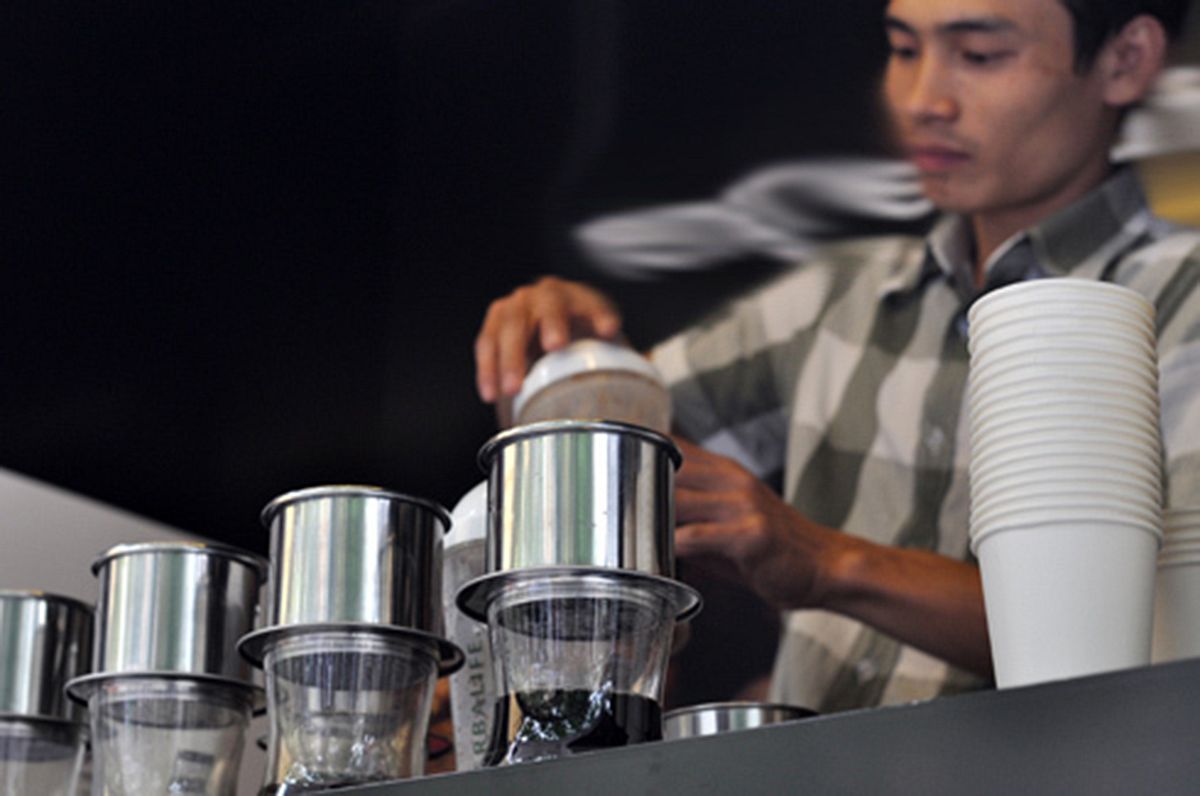Vietnam has long been a coffee-drinking country, but over the last few years a growing number of enthusiasts have started to take the brew very seriously.
One such devotee is Nguyen Duy Bieu, owner of Hanoi’s most exclusive cafe. According to VnExpress, Bieu, who first began selling Arabica coffee from the back of a bicycle in Hanoi in 2012, now runs Reng Reng Cafe, a shop whose address is reserved strictly for friends and fellow coffee enthusiasts.
Though Bieu insists he is not trying to keep his cafe a secret, the venue’s website explicitly states its address is for “regular customers only”. Somewhere in the Old Quarter, Bieu brews clean, high-quality cups of coffee for a select clientele he has managed to whittle down from the masses.
Not long after beginning his coffee bicycle venture, Bieu earned enough in sales to open a mobile cafe. People showed up in droves, but Bieu soon discovered most were there for the sake of snapping selfies and chatting with friends. In an effort to attract only the most devout coffee lovers, the owner stopped offering seating at his cafe. A little later, Bieu began to change locations, keeping customers on their toes as he moved from place to place.
A few months back, Bieu moved yet again to a WiFi-free space in downtown Hanoi. The Da Lat native remains close with his family, who still have at a farm in the southern city and grow mostly Robusta beans but also some Arabica.
While Bieu is dedicated to mastering the art of a good cup of coffee, he also believes Vietnamese beans still have a way to go before they can achieve international fame.
“We were left with a legacy, but didn’t know how to properly cultivate it,” he told VnExpress. “Take the practice of mixing coffee with corn, soybeans, caramel and other additives. It’s normal nowadays, but it actually hurts the quality of the beans over time.”
Add to this coffee-mixing habit the limited access to coffee-cultivating information, he continued, and Vietnamese farmers are at a disadvantage when it comes to improving their crops.
Still, Bieu is optimistic. “Vietnam is already the third-largest exporter in the world,” he told VnExpress. “If we could ultimately control the quality, I believe we could step up our international game.”
[Photo via VnExpress]














